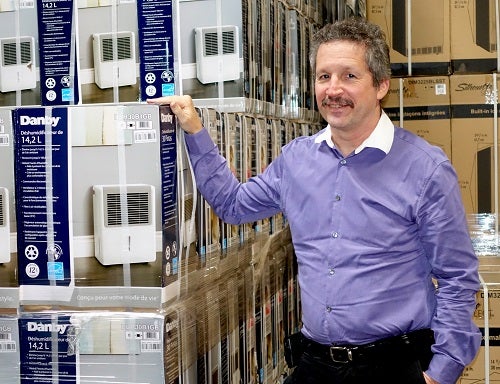
Written by Jim Estill (BASc ’80)
As I reviewed other alumni articles, I noticed that most were about business successes. In that regard, I have been lucky - I started my company from the trunk of my car and it grew to over two billion in sales. I discuss how I did that in my TedX talk.
However, this article is about another side of me. Although I am still very active in business as the CEO of Danby, I am now at the point in my life that I need to give more back.
I saw the humanitarian crisis happening in Syria that displaced millions of people. People willing to risk their lives and the lives of their children to escape to some safety.
I was frustrated with how slow the government was responding. Therefore, when I saw the relative prosperity and safety we have in Canada, I decided to bring fifty refugee families (about three hundred people) into the city I live in - Guelph.
Guelph has a population of around 130,000 people, so absorbing fifty families is a simple and small task.
This is not as much a story about money, but the story of how to do it well, and generate income. Success means fifty families working, paying their own rent, buying their own groceries, and paying taxes. I set about to put an infrastructure in place to make this happen.
It started by calling a meeting with local churches, mosques, synagogues and charitable groups. I had secured eight groups to start and coordinated a one hour meeting (I generally dislike meetings but that is for another article). Gradually, the I became a we.
We organized a structure of volunteers with directors of housing, education, food, transportation, jobs, and so on. Most importantly, directors of mentorship were assigned to the families. Each refugee family needed an Arabic speaking mentor family and an English speaking one. We developed checklists for them: setting up a bank account, riding the bus with them, showing them where the grocery store is, getting a library card, etc.
We also set up a biweekly scorecard. Do they have any health issues? How is the ESL? How are they adjusting? Any issues a family might potentially have come back to the appropriate director to solve.
For a more in-depth explanation, I wrote a blog entry on how we set it up.
We have tried not to re-invent the wheel and work with local organizations. For example, The Salvation Army is responsible for organizing basic, material necessities - clothing and furniture, since they have the relevant systems and connections. Hope House is in charge of supplying the food. To these organizations, we have simply said, "tell us what you need and we will make it happen."
This project involves 750 volunteers (all police checked and screened). We have conducted culture training with them, organized them on various committees, and consequently, one hundred percent of this project was implemented with volunteer labour.
When we needed things, we have asked. We have not only reached out to churches, synagogues, and temples, but also businesses. Only twenty percent of the population attends religious services, but they still want to help. Therefore, we have asked businesses to put forth collection bins for new socks, or asked them to donate a bed (we still need beds so I welcome anyone with connections/donations).
This project has pulled the community together.